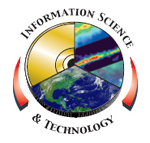A knowledge commons framework for Earth and Space Science: Technical and cultural challenges and progress in Heliophysics
Knowledge commons are a combination of intelligent information representation with openness, governance, and trust required to create a participatory ecosystem whereby the whole community maintains and evolves the shared space together -[McGranaghan et al., 2021].
This concept is central to more cohesive communities, both within and across disciplines, open science, and robust and responsible practice of data science. We will introduce it and then highlight progress toward knowledge commons within Heliophysics. This talk will highlight progress toward the Heliophysics KNOWledge Network (Helio-KNOW), specifically focusing on the efforts to represent Heliophysics knowledge. It will emphasize efforts of a Heliophysics Digital Resource Library sprint activity in 2022 to extend the coverage of Heliophysics in the NASA Astrophysics Data System (ADS) that was generative of general-purpose approaches and tools that are important to all disciplines. We highlight the semantic technologies, or tools to represent the meaning in our data and information, being built for: 1) Heliophysics phenomena; 2) scientific literature; and 3) community.
Date/Time
Wednesday, November 30, 2022, 1pm-2pm EST
Joint Seminar with Heliophysics Science Division (HSD)
This seminar can be viewed remotely via Microsoft Teams: Join here
IS&T Colloquium Committee Host: Matt Dosberg
Presentation here. Recording available via NASA MS Stream.
Ryan McGranaghan
Senior Data Scientist
NASA Jet Propulsion Laboratory
Ryan McGranaghan is a senior Data Scientist at the NASA Jet Propulsion Laboratory, where he works with the Machine Learning and Instrument Autonomy (MLIA) group to apply data science techniques robustly and responsibly to the Earth and Space Sciences. He is also a core team member for the NASA Transformation to Open Science (TOPS) initiative, improving the accessibility, inclusivity, and reproducibility of science. His career as in his life is about creating and cultivating transdisciplinary and trans-community connections for the sake of scientific discovery and flourishing.
Prior to joining JPL, Ryan spent four years as the Principal Data Scientist and Aerospace Engineering Scientist at Orion Space Solutions in Boulder, CO, where he led data science and machine learning efforts to improve our understanding of the Earth’s space environment and began a DC branch of the company. Ryan began this role after completing a Jack Eddy Living With a Star Postdoctoral Fellowship at NASA JPL, during which he studied the Earth’s and solar system planets’ interactions with the Sun. He also works extensively across NASA Centers, including Goddard Space Flight Center and the Jet Propulsion Laboratory.

